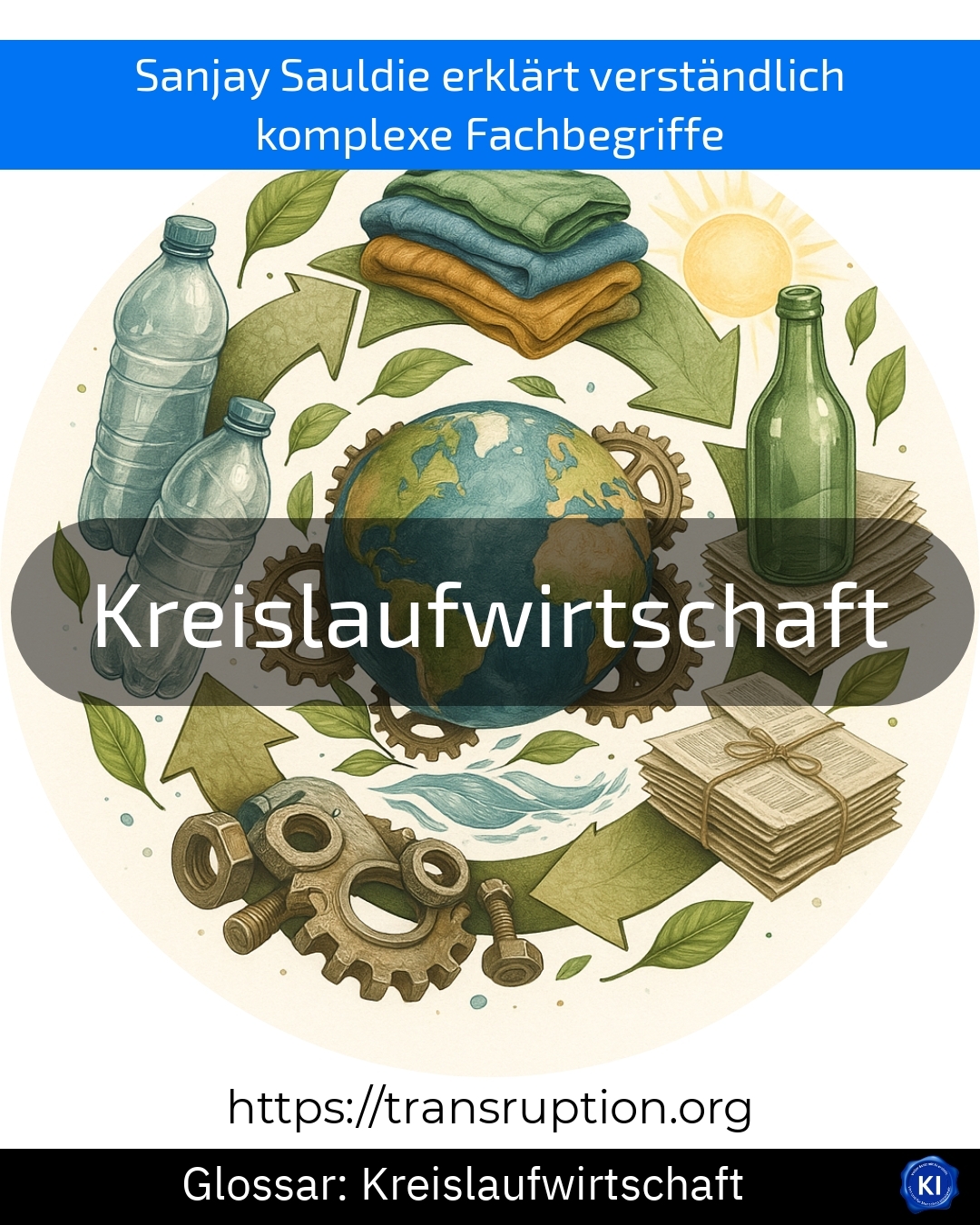The term circular economy is particularly relevant in the categories Sustainability and Environment 4.0 as well as Industry and Factory 4.0. Circular economy describes an economic system in which resources are utilised, reused and recycled for as long as possible. The aim is to avoid waste and wastage and to close material cycles.
Instead of simply throwing products away after use, they are repaired, reprocessed or broken down into individual raw materials in the circular economy so that new products can be created from them. This conserves natural resources and reduces CO₂ emissions.
An illustrative example: Imagine a company that manufactures mobile phones. In the circular economy, old mobile phones are taken back after use, the working parts are reused and valuable raw materials such as gold and copper are recovered to produce new devices. This creates a closed cycle.
The circular economy is an important approach for companies to operate more sustainably. With digital technologies such as the Internet of Things or automation, the cycle can be efficiently controlled and monitored, which not only helps the environment in the long term, but also the company's own competitiveness.















